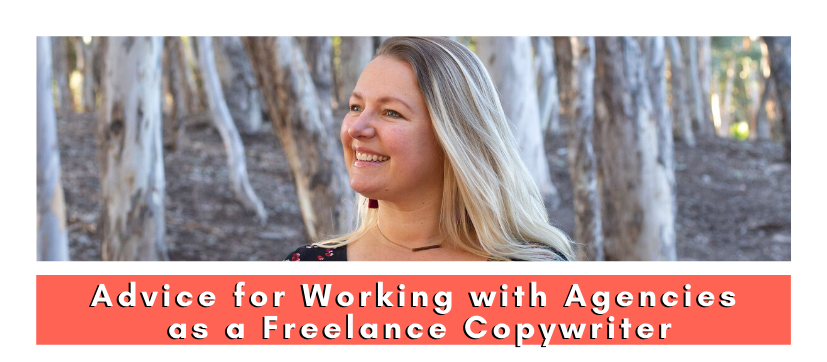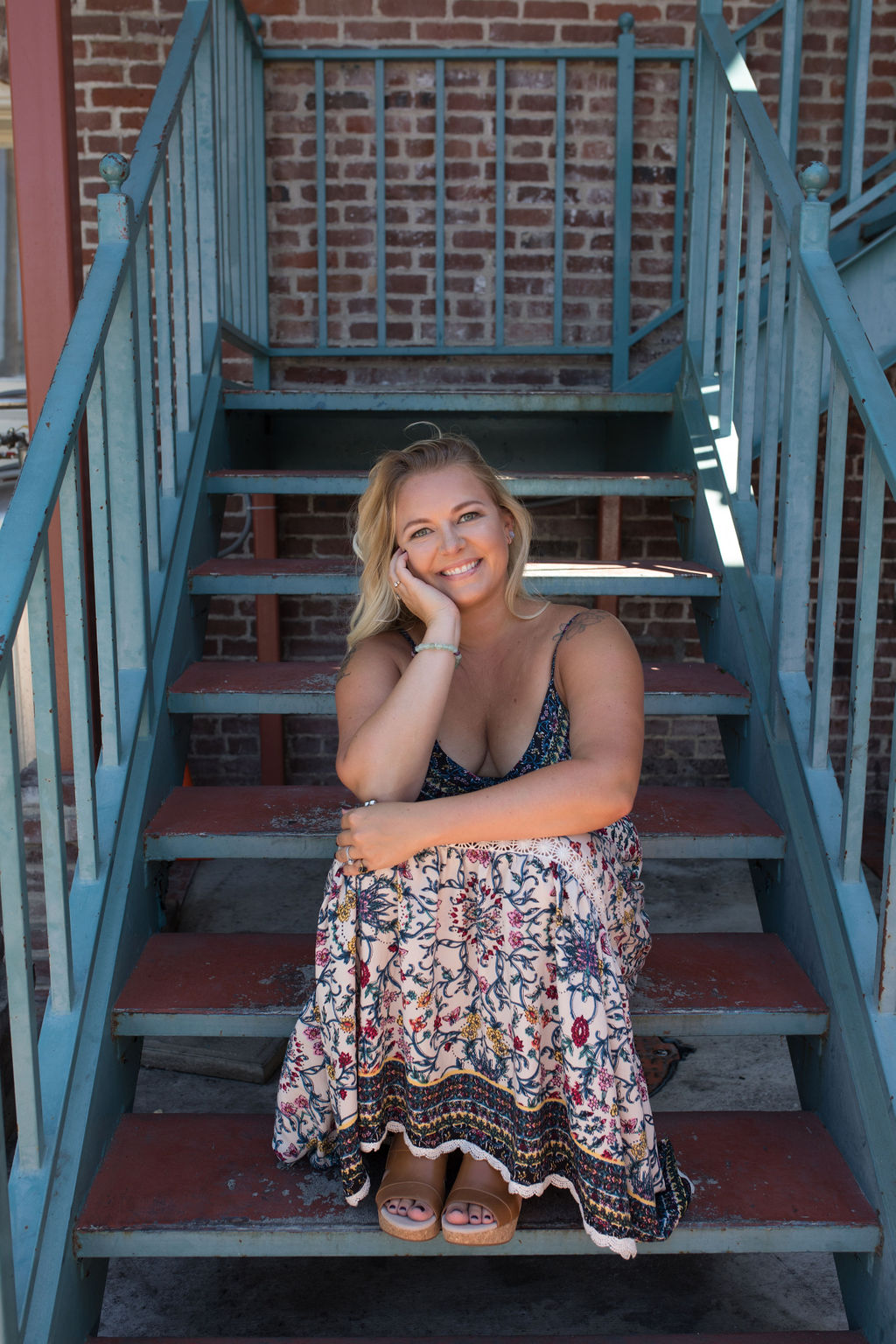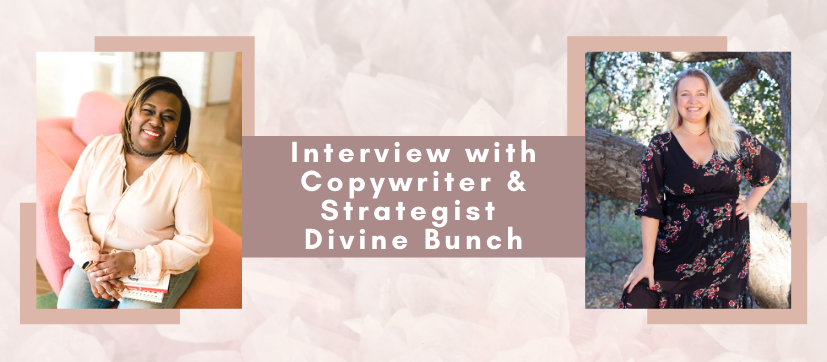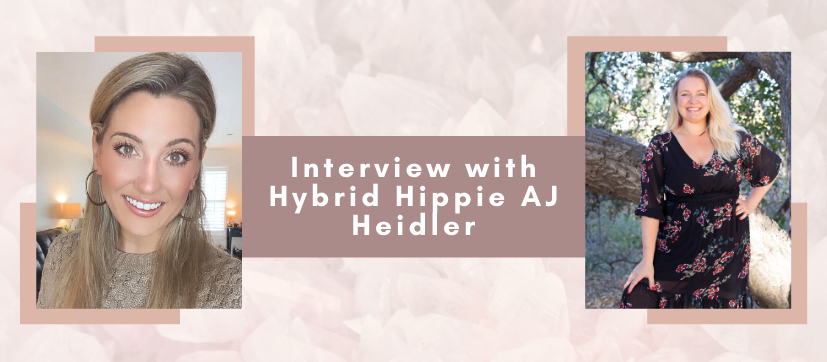Advice for Working with Agencies as a Freelance Copywriter
Advice for Working with Agencies as a Freelance Copywriter

Learn how you can start a freelance relationship with agencies and what to expect once you’re hired.
How to Find Agency Jobs
Working with agencies as a freelance copywriter is a great way to bring in regular clients and form some long lasting relationships. But how do you find them and how do you get started? I get these questions a lot from new freelancers and copywriters. The answer is you just shut your eyes and jump. Start piecing together a portfolio however you can. There are ways you can start before you even have published work. Put together what you can and start sending stuff out.
First, tap into your own network. If you do happen to have connections with ad agencies, tap into them. See if anyone is needing any copywriting support. This is also a tip for why you should try never to leave a company on bad terms. This might be a big ego check as you are leaving because you might have gone through a lot at an agency job. But for me, I have always left on good terms, even the places I quit with little notice, I still worked with intention while I was there and left on good terms. Then I would get referred by people from agency to agency.
Ad agencies are a small community, especially if you are in a hub area. I am in Southern California, which includes LA County and Orange County. People bounce around from agency to agency a lot. Once you have worked at a few of them, you’ll start seeing that people flow through different places. You never know if someone you worked with at one agency might now be at a different one and might need a copywriter. This is what happened with one of my agency clients who I have had for almost 2 years. An account manager from one agency liked me and brought me into a different agency that he went to. Also, just recently, I was on a conference call for a project with that agency, and they introduced me to a strategist, a nice British fellow. Turns out, I had previously worked with him at a different agency. That is how small this industry can be, so keeping a good rapport with the people you are working with, no matter what, really has long term benefits.
Another strategy I have used that works, is sending out cold emails. I looked up agencies in my local area and kind of got a vibe from their website to see if they were someone I would want to work with and then I sent them cold emails. I would try to find their HR person or an info@ address. If it is a really small agency, the info@ email generally goes to a creative director that isn’t sitting too far away from the CEO. They can most likely just shout across the desk at the CEO and say this copywriter reached out to us. So do a little research on the website and find a good email address. You can also look them up on LinkedIn and search for their HR person or hiring manager and send a message directly to that person. That’s a great way to introduce yourself. You can get specific. If you really love their clients, talk about how you are passionate about that industry and talk about your enthusiasm as a copywriter. See what bites and see what happens. I had a few responses when I sent out my first batch. It’s nice to get your energy flowing in that direction of new opportunities and seeing what’s out there and expanding your scope of possibilities.
LinkedIn and Indeed are both sites I enjoy applying for freelance opportunities through. A lot of times those opportunities are for agencies. You can search for jobs and set up job alerts and they are generally pretty quality leads. I like when they send out new postings that have been posted in your parameters because they aren’t spammy and are generally legit leads. I have gotten a few jobs responding to those postings on both sites. I also like them because I can upload my resume and do the quick apply option. I feel like, you know when you know. I don’t see the value in spending tons and tons of time polishing and adding all the things to my resume. It is 2020, if you want to know about me you can go on my LinkedIn profile. It’s right there on the same site and you can look at all my stuff. It’s much more comprehensive than my resume anyways. But that being said, you can save the most updated version of your resume right there on both LinkedIn and Indeed, and just use that to apply for jobs.
Another hot tip, is to create a nice templated version of a cover letter that you can go in and customize for jobs that require cover letters – and again, insert my eye roll at cover letters – so annoying. But some people really want to get to know you before they reach out for a call. Just write out a templated version then go in and customize it based on the person you are sending it to. Get really personal with it too. Do some light stalking and say I loved this specific thing about your last post on Instagram, or I love the voice and tone on your website, or I am a fan of your product. Get personal and have fun with it. It’ll give you a chance to show off your personality and you are a copywriter afterall, so you really want to show your copywriting chops wherever you can, and why not do that in your cover letter?
What to Expect
Once you land your agency job, here is a little bit of what to expect in that roll, coming from my experience. You are probably going to be communicating mostly with a project manager or an account manager. If you have never worked at an agency, these are the go to people between the creative team and the client. They are the ones talking to the client, figuring out what they want, and then translating that into creative language to then help us get stuff done. The creative team is speaking one language and the client is speaking another language, so if you luck out and have a really good project or account manager, this is going to make your life so much easier. They are also a great person to befriend because they will go to bat for you with the client a lot of times, if they know where you are coming from and where your intentions are. The really good ones will typically always have the creative team’s back and they will really push to get your most creative work approved by the client.
At smaller agencies you might be working directly with a creative director or maybe with designers. It is important to have a good rapport with designers as well because you want to make sure that your creative vision is being seen through as much as possible. And also, not to generalize, but us creatives do tend to get emotional about our work so this is where that mindset of peace comes in of not taking things personally. It’s helpful to get to know a person but not take things personally if you can. You are going to have a lot more empathy and patience with a person if you know where they are coming from and what their intentions are. Get to know their email style. I have worked with a lot of designers who HATE writing. Any words they have to write make them feel super uncomfortable and vulnerable. Their emails are very short and that can be perceived as being rude or snotty. So try to kind of get to know the people you are working with even though you might never ever meet them in person. Try to get on an intro call or figure out something you have in common so that you have that rapport going and that makes it an enjoyable experience.
Heads up on the urgency culture. This runs rampant in agencies. They are very fast paced so you need to get clear on your boundaries right away. If you take 24 hours to respond to an email, make that known immediately. Your turnaround time is going to be very important for them to know too because if they start getting to know that you can turn around a project in an hour or a day, they are going to take advantage of that. That can be good or bad but it just is what it is. So if you are cool with that, rock on. But if you have a family or a bunch of other clients or if you function better on more of a set work time schedule and aren’t one to whip out your laptop at midnight to get a project done, just make that clear.
You will probably need to learn their task management software which are things like TeamWork, Asana, or Trello. Those are all ones that I have worked on with different agencies and someone will give you a training. It’s no big deal, you’ll just get set up on it and get used to it. And if you have questions, ask because these people are working on the platforms all day every day and you are just kind of in there sporadically, so they might assume you know something that you don’t know. Don’t be afraid to say that you don’t know what they are asking for or that you have no idea where to find things, and just ask them to point you in the right direction.
Be ready for pointless conference calls. I was just on one the other day, sitting there wondering why am I on this? I said zero words. It wasn’t even talking about copy, it was talking about someone’s estimated hours. It was kind of annoying but also billable hours. So I just took the time to relax and just be there and used it as a rest period. It’s just an agency culture thing. They love their meetings that tend to spiral into nothingness.
Compensation
For compensation, you’ll be either charging them hourly or you’ll be on a retainer. In my experience, it’s been mostly hourly, that just seems to be how agencies like to work with their freelancers, but it can go either way. And then as far as what you are quoting them on your hourly rate, it depends on so much. It depends on where you live, your experience, it depends on how big they are, it depends on their budget. Ask for what rate feels good to you. Decide what rate feels good to you, then bump it up a little bit, and then be open to negotiations.
Pros and Cons
The pros of working with agencies is regular work and long term relationships. This has been really great for me, especially when going through something like Covid, because the work did slow down from my agencies but I had that cushion. Clients will drop on and off projects especially when projects end. But when you have a relationship with an agency, it’s more of a long term flowy relationship. So that just kind of feels good in your business and you have that little pillow to land on if times get tough. You at least know that income is coming in.
The cons are that you don’t have as much control over the projects you work on. And like I mentioned before, you need to keep an eye on anyone taking advantage of your time. So again, boundaries, boundaries, boundaries. I still do freelance work for the agency that I left when I was a brand new freelancer, so this is just a really great opportunity for a long term relationship. If it sounds like something that you want to explore I really encourage you to look into it. In the industry in general, a lot of agencies are shifting to more of a micro or boutique agency vibe and people are all over the place working remotely. So if agency work is something that you have always been intrigued with, I feel like now is a really great time to jump in and see what is out there for you. Explore it, if you are feeling called to explore. Plus looking at agency websites is fun because they are normally really cool. You can go search the big agencies like TBWA Chiat Day or 72andSunny, then just kind of go creep on their websites and just get inspired. See how that vibe feels to you and decide if it is something that you want to be a part of.
Agency Freelancing
These are all my hot tips on great ways to find agency jobs, what to expect when working for an agency, what your compensation will be like, as well as all the pros and cons of working for one. If the feel of freelance copywriting for an agency calls to you, I hope this helps you find the best fit for your creativity, energy and workflow needs.
If you would like to connect with me, I have a Facebook group called The Copywriting Girls Club It’s a great place to connect with other female writers and business owners. You can ask questions, get feedback on your writing, network, and even vent. It’s a fun little hang out. You can check it out HERE.
Find me on Instagram for more tips and tricks like these HERE.
I also have a freebie for you for over 20 ways to repurpose your long form content. It’s called the Spread Your Magic Cheat Sheet. This can be for your own content marketing strategy or you can use it for clients. You can basically take a blog you write and spread it out over tons and tons of different places so that you are optimizing your time and your energy. And it’s fun! So grab your free content repurposing guide HERE and start repurposing the heck out of your content.
Want to connect with other passionate female copywriters, grow your network to get new leads, improve your craft as a writer, and have a safe space to vent about clients? Join us in the Copywriting Girls Club! It’s our private girl gang on Facebook, and we would love to have you in there to share your zone of genius.









